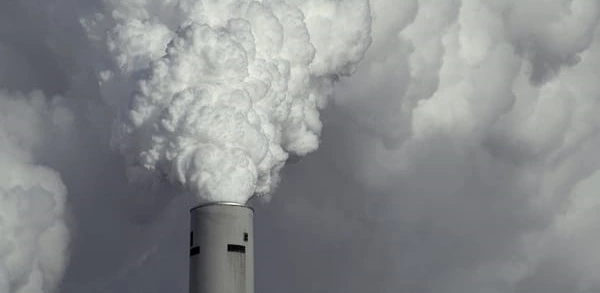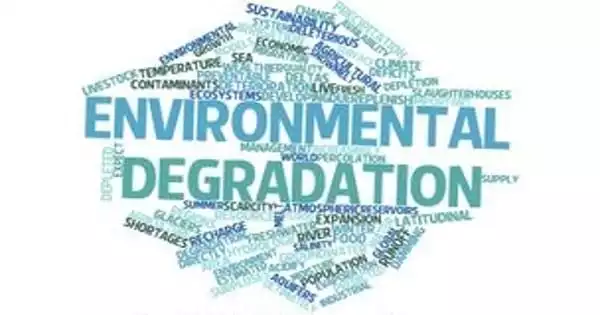Air pollution was responsible for 1.1 million deaths across Africa in 2019, with household air pollution — driven largely by indoor cookstoves — accounting for 700,000 fatalities, while increased outdoor air pollution claimed 400,000 lives, a team of researchers led by Boston College and the UN Environment Programme report in the latest edition of the journal The Lancet Planetary Health.
Furthermore, air pollution costs African countries billions of dollars in GDP and has been linked to a severe loss in the intellectual development of Africa’s youngsters, according to the experts.
The international team discovered that, while deaths from household air pollution have decreased slightly, deaths from outdoor, or ambient, air pollution are on the rise, according to Boston College Professor of Biology Philip Landrigan, MD, who led the project with United Nations Environment Programme Chief Environmental Economist Pushpam Kumar.
“The most troubling finding was the increase in mortality due to ambient air pollution,” said Landrigan, head of Boston College’s Global Observatory on Pollution and Health. “While this growth is presently modest, it threatens to grow enormously over the next two to three decades as African cities expand and the continent develops economically.”
Investment in pollution control, in addition to climate and biodiversity, provides a higher return than is commonly assumed. This study from three different African countries reveals that regulating pollution has a positive influence on human capital and helps establish the groundwork for long-term recovery in the post-pandemic age.
Professor Philip Landrigan
According to the co-authors, the African continent is undergoing a huge transformation. Africa’s population is expected to more than quadruple in the next century, rising from 1.3 billion in 2020 to 4.3 billion by 2100. Cities are growing, economies are expanding, and life expectancy has nearly doubled. According to the research, fossil fuel combustion has caused an increase in outdoor air pollution, which killed 29.15 people per 100,000 population in 2019, up from 26.13 deaths per 100,000 in 1990.
Air pollution is the second leading cause of death in Africa, killing more people than cigarettes, alcohol, motor vehicle accidents, and drug misuse combined. Only AIDS is responsible for more deaths. According to the research, Africa is part of a global toll taken by air pollution, which killed an estimated 6.7 million people worldwide in 2017.
“Air pollution has significant detrimental effects on health, human capital, and the economy in Africa,” the co-authors write. “As countries develop, the magnitude of these impacts grows.”
The researchers calculated that air pollution exposure to newborns and early children resulted in a loss of 1.96 billion IQ points across the continent when they examined the toll on the developing brains of youngsters.
The team investigated African air pollution trends to evaluate the effects on human health and economic development in 54 African countries. The team focused on three rapidly developing Sub-Saharan African countries: Ethiopia, Ghana, and Rwanda.
“We concentrated on these three nations since they are all at various stages of economic development, and we reasoned that comparing air pollution patterns among them would provide us with a solid indicator of future trends,” Landrigan explained.

According to Landrigan, the increased trend in outdoor air pollution is most visible in Ghana, the most economically advanced of the three nations, and is beginning to be noticed in Ethiopia and Rwanda.
According to the paper, “experience from other nations implies that the rises in AAP emerging in Africa now could be the forerunner of an impending crisis.” “Without creative leadership and active intervention, AAP might become a considerably greater cause of disease and early mortality than it is now, posing a significant danger to economic development.”
The study discovered that, in addition to the toll on human health, air pollution imposes economic consequences. Economic output lost to air pollution-related disease in Ethiopia was $3.0 billion, or 1.16 percent of the country’s GDP; $1.6 billion in Ghana (0.95 percent of GDP); and $349 million in Rwanda (1.19 percent of GDP).
“Investment in pollution control, in addition to climate and biodiversity, provides a higher return than is commonly assumed,” said UNEP’s Kumar. “This study from three different African countries reveals that regulating pollution has a positive influence on human capital and helps establish the groundwork for long-term recovery in the post-pandemic age.”
The report suggests that governments make air pollution prevention and control national priorities, as well as generate long-term funding to support those aims. Among the specific recommendations are:
- Invest in clean renewable energy, particularly solar and wind power, while lowering dependency on coal, oil, and gas.
- Reduce traffic and pollution caused by traffic by boosting fuel taxes and parking fees, imposing congestion charges, establishing vehicle-free zones and cycle routes, and upgrading public transportation.
- Regulate open garbage burning by households and businesses, as well as set restrictions on agricultural burning, such as burning forest to convert to agricultural land and crop residue burning.
- Implement systematic reforms to identify, control, and track indoor and outdoor air pollution sources, as well as fund research to further assess the impact on public health.
“We advise Africa’s leaders to take advantage of the fact that their countries are still relatively early in their economic development and to transition quickly to wind and solar energy, so avoiding entrapment in fossil-fuel-based economies,” Landrigan said. “We suggest that African countries are in a unique position to avoid mistakes committed elsewhere and attain wealth without polluting the environment.”
“Air pollution in Africa threatens economic progress and future growth, but it is avoidable if sensible governments shift quickly to wind and solar energy and avoid becoming entrapped by coal, gas, and oil,” Landrigan added.
















